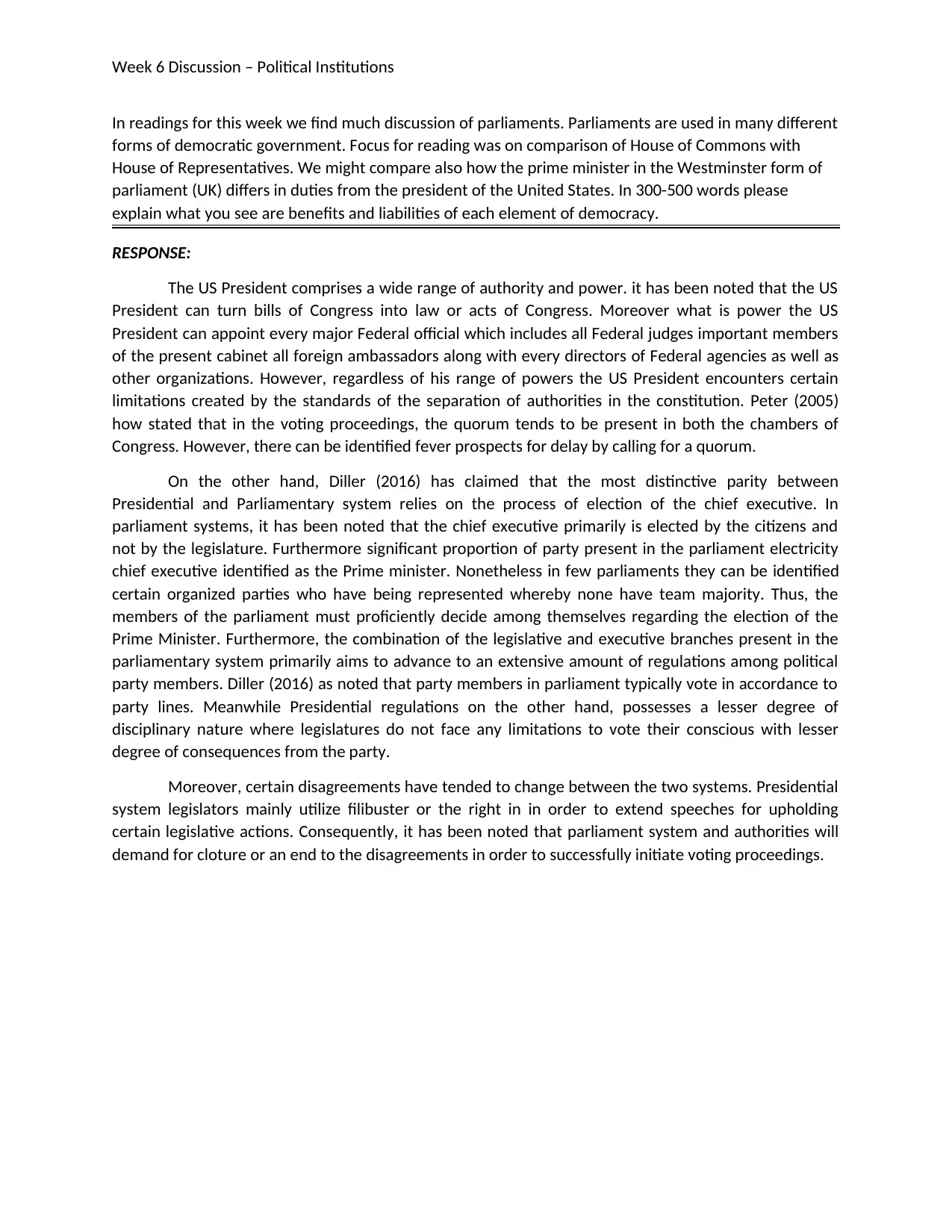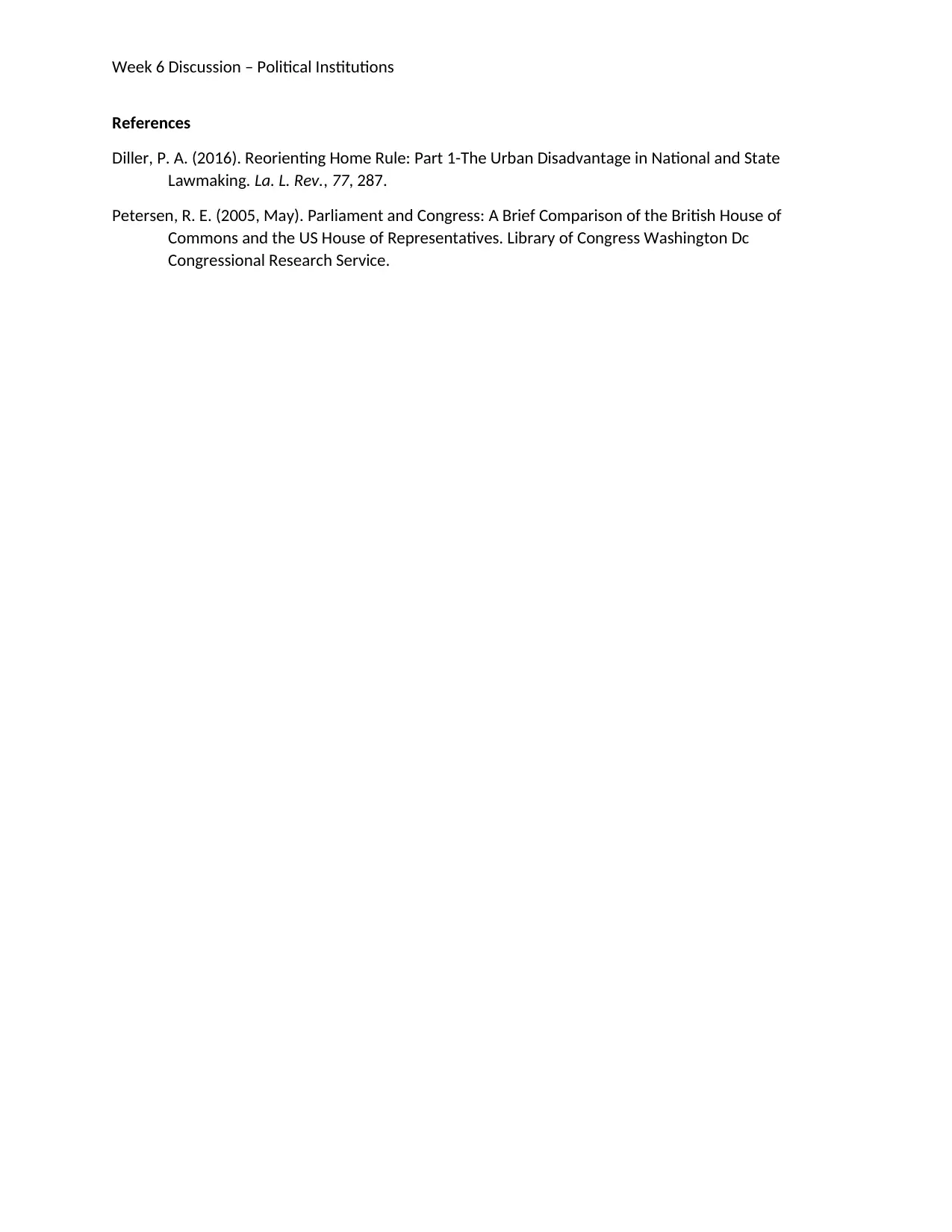Discussion: Comparing US and UK Political Institutions, Week 6
VerifiedAdded on 2023/04/22
|2
|573
|458
Discussion Board Post
AI Summary
This discussion post examines the benefits and liabilities of the US and UK political systems, focusing on the roles of the President and Prime Minister. The post begins by highlighting the extensive powers of the US President, including the ability to enact laws and appoint federal officials, but also acknowledges the limitations imposed by the separation of powers. It then contrasts this with the UK's parliamentary system, where the Prime Minister is elected by Parliament. The post discusses the differences in election processes, the influence of political parties, and the legislative processes of both systems, including the use of filibusters and cloture. The author references several scholarly sources to support their analysis, providing a well-rounded comparison of the two systems. The discussion concludes with a comparative analysis of the two systems, exploring the strengths and weaknesses of each approach.
1 out of 2








![[object Object]](/_next/static/media/star-bottom.7253800d.svg)